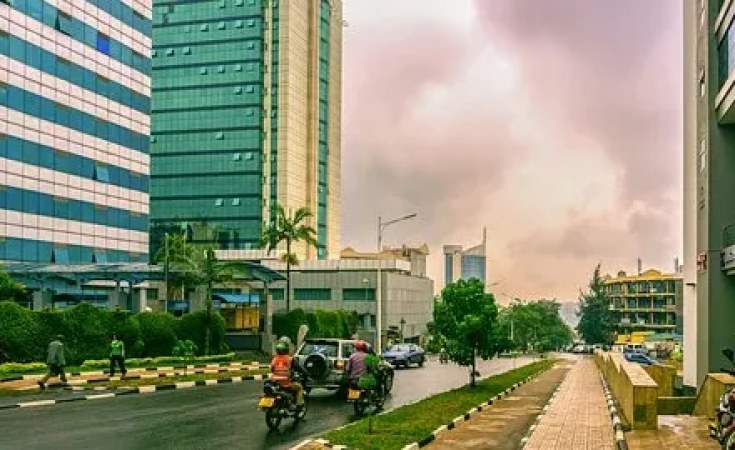Rwanda is intensifying efforts including contact tracing as well as screening travelers at Kigali International Airport (KIA) to prevent potential export of Marburg virus disease cases, health minister Dr. Sabin Nsanzimana said on Thursday, October 3.
He made the observation during a press briefing, on the Marburg outbreak, co-hosted by the Director-General of Africa Centers for Disease Control (Africa CDC), Dr Jean Kaseya. Nsanzimana was commenting on surveillance to address international spread of the virus, and policy regarding international travel.
Nsanzimana said that - since Marburg virus outbreak on September 27 - the country put in place mechanisms to extend its contact tracing of Marburg virus cases and make sure "we quarantine and test" them on a regular basis.
He said there is also travel screening at points of entry, and a travel notice was also to be issued in terms of screening in the country, "for people who are exiting Rwanda travelling outside to make sure there is no suspected case going from KIA."
"And this is important for us because it explains also why we are here and we have to work together as a region and continent that we don't get any exported case out of our continent," he said.
"We have intensified our exit screening for symptoms of course. There have been thermal cameras on our points of entry. But also, for anyone who is still in incubation period, even if the test is negative, will be requested not to travel until we rule out all possibilities and that is assuring in terms of not allowing any case to travel through our borders or by air from Rwanda to other countries," Nsanzimana said.
A Rwanda travel advisory regarding Marburg virus disease that Rwanda Development Board (RDB) issued on Friday, October 4, informed travellers to expect routine temperature checks, and the provision of hand sanitising stations at airports and other border crossings.
"All passengers exiting the country will go through a short symptom-screening questionnaire with RBC staff to ensure their well-being and the safety of others," the notice reads in part.
So far, there have been two alerts of people who travelled from Rwanda and were among contacts, according to Nsanzimana.
They are a woman that travelled to Belgium, who was a wife whose husband died of the disease, and a student who was practicing [doing internship] in a teaching hospital in Kigali - where a case of the virus was confirmed.
Later, the student travelled to Germany, after being tested on September 30 and the result was negative, Nsanzimana said.
"The decision to travel after a negative test, and also a communication to our colleagues in Germany, have been done in accordance with international health regulations. And we've been exchanging on these cases, and once they tested him again negative in Germany, they quickly notified us," he said.
For the woman who went to Belgium, Nsanzimana said "we have been in contact with health system, through the international health regulations, of Rwanda and Belgium to follow up on the situation.
The final confirmation that WHO also reported about, Nsanzimana said, showed that the woman was not symptomatic, "and has completed the follow-up period which was our role to make sure at international collaboration. Whenever we see a risk we communicate and work together."
Africa CDC Director-General Dr Jean Kaseya said "we need to recognise that Rwandan government transparency. And this is critical when we have outbreaks. And this transparency is helping us not only in Africa, but [also] in the world, to know how we can work together to stop this outbreak."
Nsanzimana indicated that Rwanda has traced 400 contacts [of the confirmed Marburg virus cases], "and we have gone beyond close contacts to make sure we don't miss any case."
"We have done extra measures to screen everyone in the country with high fever, headache, and muscle pain and all related symptoms to make sure we don't miss any case."


